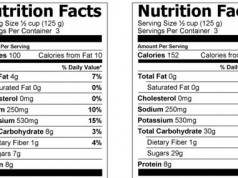Dear Pharmacist,
Is it safe for me to take calcium supplements? You said on facebook that they might increase heart problems. Why is that? –.N.R., Seattle, Washington
Answer: My post was based on the April 2011 research published in the British Medical Journal (BMJ) that linked cardiovascular events (think heart attack or stroke) increased in older women who took calcium supplements.
Calcium is suggested for post-menopausal women in order to maintain or build bone strength. Recently, researchers looked at data from 16,718 women who were not taking calcium supplements at the start of the famous Women’s Health Initiative trial. They poured over the data and found that women who were already taking calcium and vitamin D supplements at the start of the trial did not have any greater risk of heart attack. In contrast, the women who began taking calcium and vitamin d supplements during the trial, had an increased risk of heart attack. The scientists suspect the trouble occurs because of the abrupt change in blood calcium levels, rather than total intake of calcium. That said, high blood levels of calcium have been linked to hardening of the arteries (calcification), which may partially explain their findings.
Data from 13 different trials (including 29,000 people), consistently points to increased risk of heart attack and stroke, uncannily associated with calcium supplements (with or without vitamin D). This is a hot topic, and some physicians feel strongly that calcium is the master mineral of bone health. I think we need a good study to determine what is going on. For sure, the calcium you get from food sources is highly bioavailable, and hasn’t been shown to cause calcification. The BMJ study refers to supplements and it begs the question, as to what kind of calcium supplements are to blame? Are certain forms better than others? This was not teased out.
For the time being, if you are at risk for cardiovascular complications, or stroke, my suggestion is that you avoid calcium supplements. Get your calcium from food because it is highly bio-available; food-derived calcium improves estrogen balance which protects bone mass. Eat lots of leafy greens, Swiss Chard, kale, kelp, spinach, lettuce and broccoli. Tahini’s good too. I’m not a huge fan of dairy, but this is certainly another option. Don’t forget the obvious, weight-bearing exercise, which will reduce your risk of osteoporosis. If you happen to take a bisphosphonate bone-building medication (Boniva, Actonel or Fosamax), it can reduce levels of calcium so your doctor may suggest this mineral for you, in order to restore levels to normal. Calcium is to be appreciated not feared, but take it only if you are deficient. Refer to my Drug Mugger book to see if you take a medicine that depletes it.
Did You Know?
People with Celiac disease or gluten intolerance are prone to developing osteoporosis because they have trouble absorbing calcium from food.













